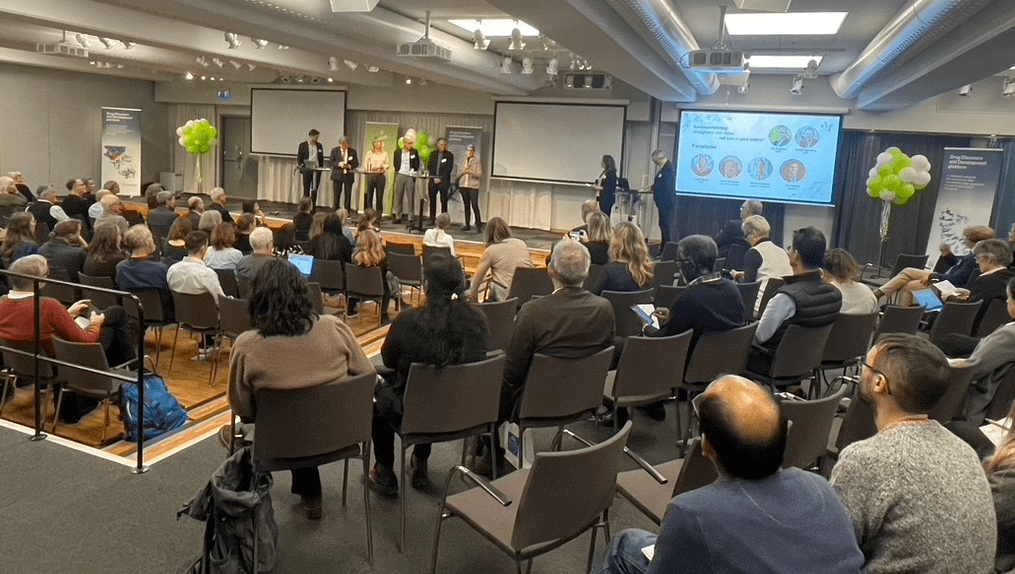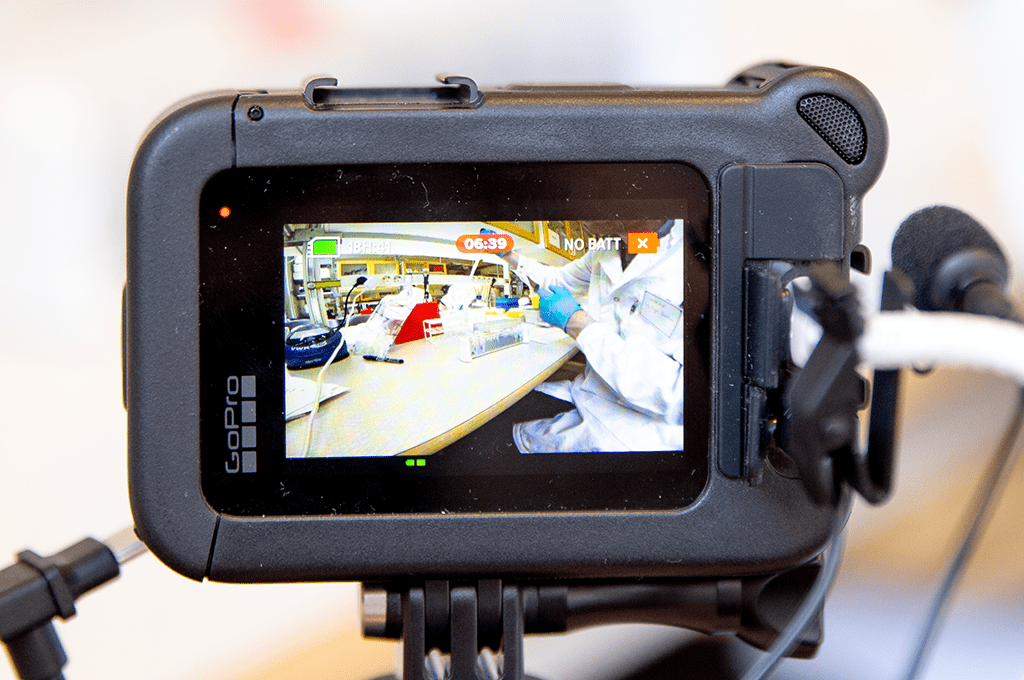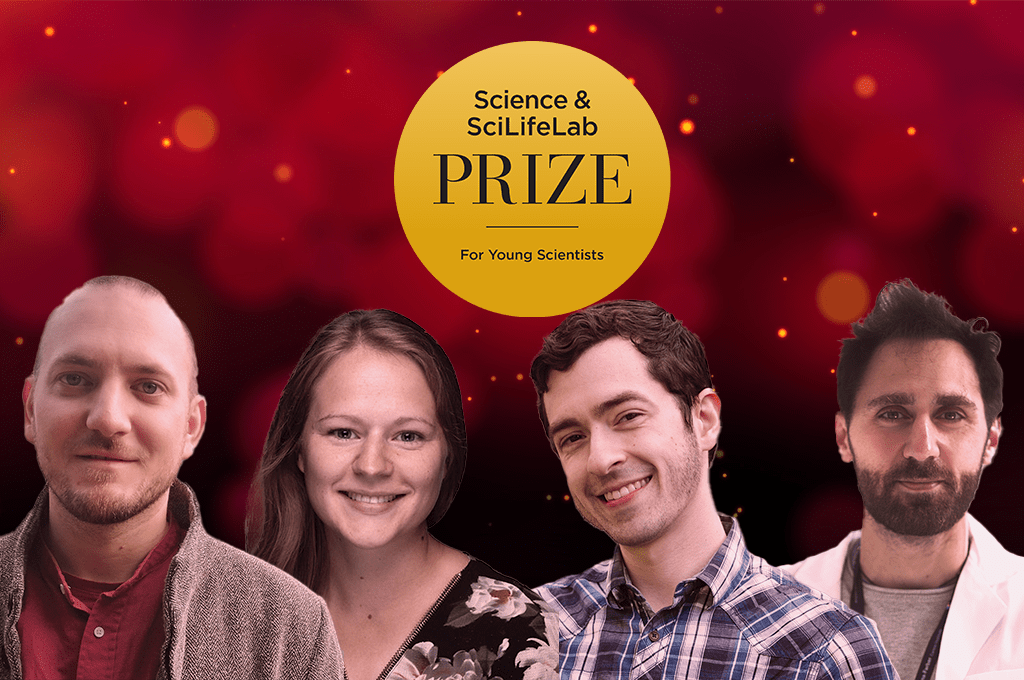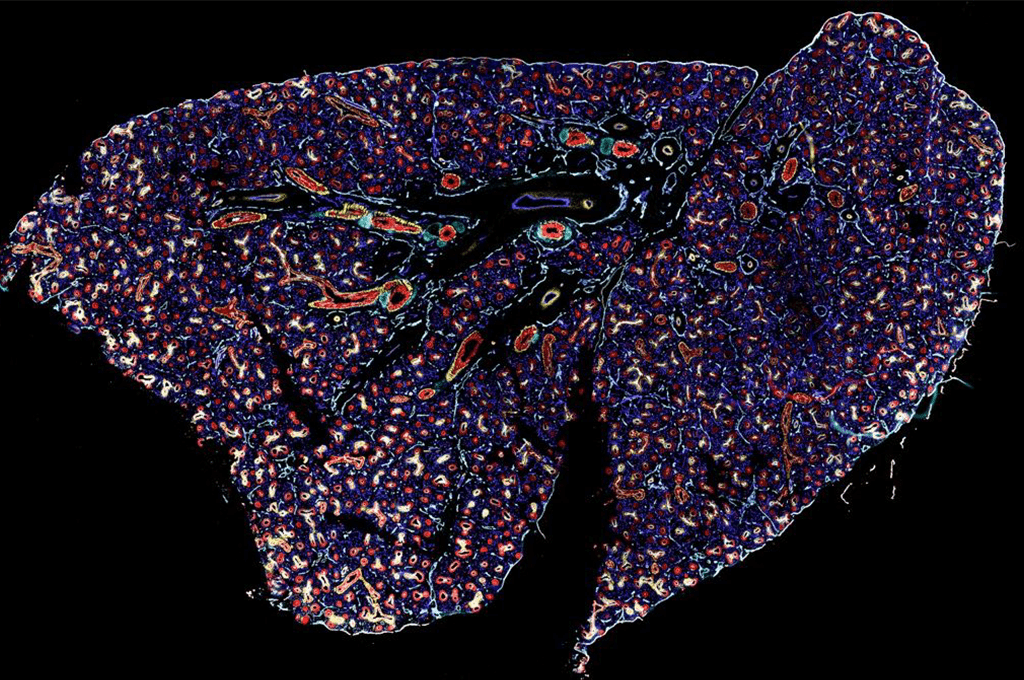SciLifeLab Drug Discovery and Development 10 years celebration
During the SciLifeLab Drug Discovery and Development symposium, held on November 12 to celebrate its 10-year anniversary, key themes like competence, collaboration, process development, and innovation were frequently highlighted. The symposium, titled Translational Research as a Boost for Swedish Life Science, underscored the platform’s value to the scientific community. Perhaps Marika Nestor, speaking on behalf of Akiram Therapeutics, one of the company exits from the platform, captured it best when she recalled a message shared as her academic research project joined the platform: “you don’t just get our working hours—you get our hearts as well.”
Karin Forsberg Nilsson opened the symposium with a comprehensive overview of the past decade, tracing developments that have led to today’s advanced platform for drug discovery and development. Her presentation covered the evolution of small molecules, antibody therapeutics, oligonucleotides, and new modalities.
SciLifeLab Co-Director Mia Phillipson presented a view of the integration of the translational medicine platform into SciLifeLab’s other basic research infrastructures, and reflected on her drug development journey as founder of Ilya Pharma, a clinical stage biopharmaceutical development company focusing on wound healing.
During 2014 to 2023, seventeen exits have sprung out of the Drug Discovery and Development platform. During the celebration, an additional exit was added to that figure, when Sortina Pharma made their exit from the platform with a small molecule therapeutics project targeting sortilin, a key driver in both cancer and neurodegenerative diseases.
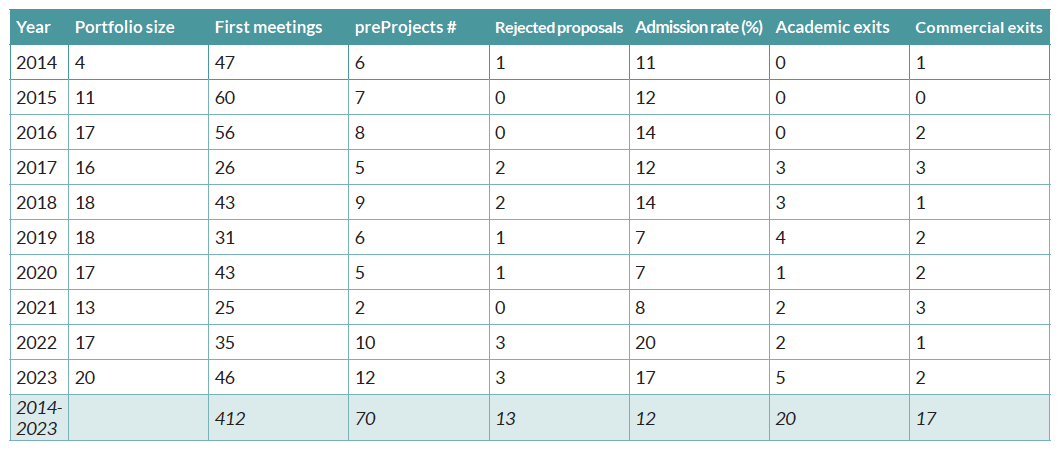
Two examples of spin outs from the DDD platform presented their view of the development journey with the Drug Discovery and Development Platform; Akiram Therapeutics and Lipum – both today being pharmaceutical companies in clinical stage. Akiram focusing on Development of Cancer Targeting Radiopharmaceuticals, and Lipum specializing in the discovery and development of new treatments for chronic inflammatory disease.
Marika Nestor, Professor at the Department of Immunology, Genetics and Pathology, at Uppsala University and co-founder and CEO of Akiram Therapeutics shared insights from the development journey with the platform.
“At Akiram Therapeutics, we develop applications both for imaging and therapy. If you can see the tumor – you can treat it! Therefore, we focus both on tumor visualization and characterization and development of a potent therapeutic modality. The support from SciLifeLab’s Drug Discovery and Development platform has been a truly collaborative effort between our research group and the platform. During the development phase, we bounced research and development ideas back and forth. Furthermore, the IP free antibody libraries, the fact that intellectual property rights are owned by the academic researchers, advanced instrumentation, the industrial perspective, and the competence was key to the success of the launch of the company”, said Marika Nestor.
Anna Sandström, AstraZeneca presented insights from what Big Pharma sees as upcoming trends.
“What SciLifeLab Drug Discovery and Development Platform needs to do long-term is to have a presence and showcase the effect of what you do, to consider that technology development is needed and is also a commercialization strategy that needs to be captured, and to raise awareness of what DDD does. There aren’t many initiatives in Sweden that have the same luminosity as SciLifeLab and the Drug Discovery and Development platform” said Anna Sandström.
Maria Nilsson, State Secretary to the Minister for Education, Johan Pehrson, presented the government’s view on the utilization of academic research in the next research and innovation bill.
“If we are to be successful nationally, we also need to be successful internationally, we need responsible internationalization and we need to be an innovative country where we maintain the chain between excellent academia, a functioning ecosystem and soil for viable companies. The life science sector is central to this, accounting for ten percent of Sweden’s exports. The life science sector contributes strongly to putting Sweden on the map as a nation of innovation and knowledge. In the upcoming bill, the government aims to further strengthen the Swedish innovation system, including through investments in groundbreaking technology and research infrastructure ,” said Maria Nilsson.
The program was wrapped up with summarizing words and a panel discussion on opportunities and risks – with focus on what we can improve with joint efforts from the ecosystem. In this panel discussion, experts Per Arvidsson, Kristian Sandberg, Claes Wahlestedt, Jennie Ekbeck, Carl Kilander, and Helena Danielson explored opportunities and challenges facing the current scientific and innovation landscape.
“In the future, I believe we will see more multi-specificity drugs and advanced therapies. The Drug Discovery and Development platform will stay focused on pharma and biotech and support ATMP when possible” said Per Arvidsson Director, Drug Discovery & Development at SciLifeLab in the closing words of the symposium.
The full program from the symposium is found here >>
